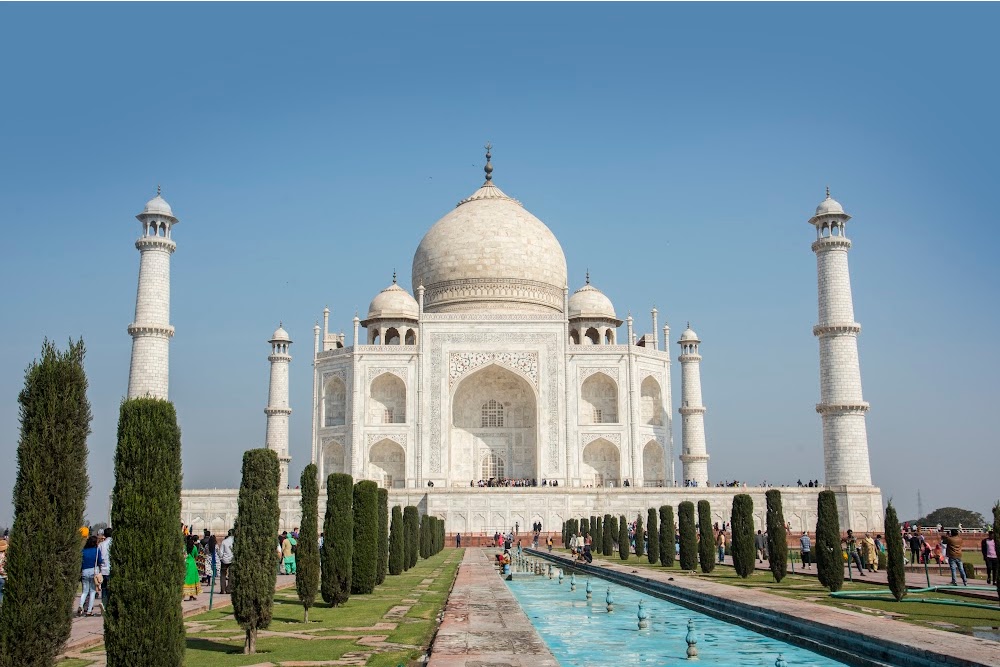Embarking on a thrilling journey doesn’t always have to drain your wallet. With the right strategies, you can explore the globe’s magnificent vistas and vibrant cultures while adhering to a budget. In this guide, learn the ins and outs of budget travel from choosing affordable destinations to practical tips on saving money during your journey.
10 Recommendations
for Budget Travel
1. Plan Early: Early planning allows you to snag lower prices on flights and accommodations.
Early planning is quintessential for budget travelers aiming to minimize costs. This entails scrutinizing flight fares and lodging prices well ahead of your travel dates. Websites like Skyscanner and Kayak are invaluable as they offer a comparative analysis of prices across different airlines.
For example, booking a flight from New York to Paris can be cheaper when done a few months in advance. Moreover, early planning also provides ample time to scout for discounts or special deals on accommodations. Various booking platforms like Booking.com or Airbnb often have early bird specials that could save a substantial amount.
Besides, planning early allows you to have a wider selection of affordable accommodations before they get booked out, especially in high-demand locales.
2. Travel Off-Peak: Opt to travel during the off-season or shoulder seasons to avoid heightened prices.
Traveling during the off-peak or shoulder seasons is a pragmatic approach to avoiding the inflated prices prevalent during peak tourist seasons. For instance, a trip to a popular European city like Barcelona can be significantly cheaper during the late spring or early fall compared to the summer.
Not only are flights and accommodations generally less expensive, but many attractions also have reduced prices or are less crowded, which enhances the overall experience.
Besides, several destinations have favorable weather during the shoulder seasons, which might offer a more pleasant and budget-friendly travel experience.
3. Opt for Budget Accommodations: Consider hostels, guesthouses, or vacation rentals rather than hotels.
Opting for budget accommodations such as hostels, guesthouses, or vacation rentals instead of hotels is a significant cost-saving strategy. Platforms like Hostelworld or Airbnb offer a plethora of affordable lodging options worldwide.
For instance, while a hotel room in Rome might set you back over $100 per night, a hostel or a guesthouse room can often be found for under $50. Moreover, these budget accommodations often provide communal kitchens where you can prepare your own meals, saving further on food expenses.
They also offer a chance to meet other like-minded travelers, which could lead to shared expenses on future travel activities like group tours or car rentals.
4. Use Public Transport: Minimize expenses by using public transportation instead of taxis or rental cars.
Utilizing public transportation instead of resorting to taxis or rental cars is an economical choice. In cities with robust public transportation systems like London or Tokyo, commuting via buses or trains is not only cheaper but often faster due to heavy traffic conditions.
For example, a day pass for London’s public transportation can cost around $20, allowing unlimited travel on buses and the underground, whereas a single taxi ride could cost that much or more.
Moreover, many cities offer tourist travel cards providing unlimited travel and discounts on attractions, further aiding in keeping the travel costs low.
5. Pack Smart: Carry essentials to avoid unexpected purchases.
Packing smart by including all essentials can ward off unexpected expenditures during your trip. Carrying items like a reusable water bottle, snacks, basic first aid supplies, and any necessary medications can save you from having to make unplanned purchases at a higher price in tourist areas.
Additionally, packing a small umbrella and some basic weather-appropriate gear can save you from having to buy these items if unexpected weather conditions arise.
6. Travel Insurance: Invest in a good travel insurance to avoid high costs in case of emergencies.
Investing in a good travel insurance policy is a prudent measure to evade high costs during unforeseen situations. Companies like World Nomads or SafetyWing offer travel insurance packages that cover medical emergencies, trip cancellations, or lost belongings without breaking the bank.
This small investment can potentially save thousands of dollars in case of a medical emergency abroad, making it a wise financial decision for budget travelers.
7. Free Activities: Look for free activities and attractions.
Exploring free activities and attractions is another way to stretch your travel budget. Cities often have a myriad of free or low-cost attractions such as museums, parks, and historical sites.
For instance, London boasts numerous free museums like the British Museum or the Natural History Museum. Similarly, enjoying natural attractions like beaches or hiking trails can offer fulfilling experiences without any entrance fees.
8. Eat Like a Local: Opt for local eateries rather than tourist-centric restaurants.
Eating like a local is not only a culturally enriching experience but also a significant cost-saver. Venturing into local markets or dining at street food stalls can drastically cut down your food expenses.
For example, a hearty meal at a local eatery in Bangkok might cost around $2-$5, while a similar meal at a tourist-centric restaurant could be over $10. Moreover, local eateries offer an authentic taste of the region’s cuisine, providing a more genuine culinary experience.
9. Work or Volunteer Abroad: Exchange your skills for accommodation and food.
Working or volunteering abroad through platforms like Workaway or WWOOF can be an effective way to offset living costs while traveling.
These platforms connect travelers with hosts who provide accommodation and food in exchange for a few hours of work each day. This exchange not only alleviates accommodation and food expenses but also provides a unique opportunity to immerse oneself in the local culture and community.
10. Use Budget Travel Apps: Utilize travel apps for finding cheap flights, accommodations, and activities.
Utilizing budget travel apps is the last but certainly not the least tip for budget traveling. Apps like Hostelworld for finding affordable accommodations, Skyscanner for cheap flights, or Trail Wallet for managing your travel budget are indispensable tools for a budget traveler.
These apps aggregate the best deals, provide price alerts, and help manage finances, ensuring you don’t overshoot your budget. Over time, the savings accrued from utilizing these apps can be substantial, making your travel experiences more affordable and well-organized.
Budget Locations:
Southeast Asia, Eastern Europe, and Central America are renowned for their affordability, providing budget travelers with diverse cultural experiences and beautiful landscapes without the hefty price tag. Countries like Vietnam, Cambodia, Poland, Hungary, Guatemala, and Nicaragua offer economical accommodations, affordable dining, and low-cost activities.
Travel Activities You Can Do on a Budget:
Engage in outdoor activities like hiking, swimming, and exploring national parks. Participate in free walking tours offered in many cities. Explore public museums, historical sites, and cultural events that offer free or low-cost admission.
Travel Tips for Getting to the Destination on a Budget:
Book flights well in advance and be flexible with your travel dates to secure the best deals. Consider alternative airports, as flying into a smaller airport may be cheaper. Sign up for airline newsletters and price alerts to stay informed about promotions and discounts.
Recommendations for Food and Drink on a Budget:
Opt for street food, local markets, and small family-run eateries for affordable and authentic meals. Avoid dining in tourist-heavy areas where prices are typically inflated. Carry a reusable water bottle to save money and reduce plastic waste.
Travel Gear While on a Budget:
Invest in a good-quality, multipurpose backpack to avoid the cost of checked luggage. Pack lightweight and versatile clothing items that can be mixed and matched. Carry a refillable water bottle and portable snacks to avoid purchasing expensive food and beverages while out exploring.
Pro-Tip from the Editor:
Embrace the local culture and lifestyle for a richer, more affordable travel experience. Locals know the best spots for affordable dining, shopping, and activities. Make local friends, learn a few phrases of the local language, and immerse yourself in the community. This not only enhances your travel experience but also opens doors to cost-saving local insights and alternatives that are not widely known by the typical tourist.






